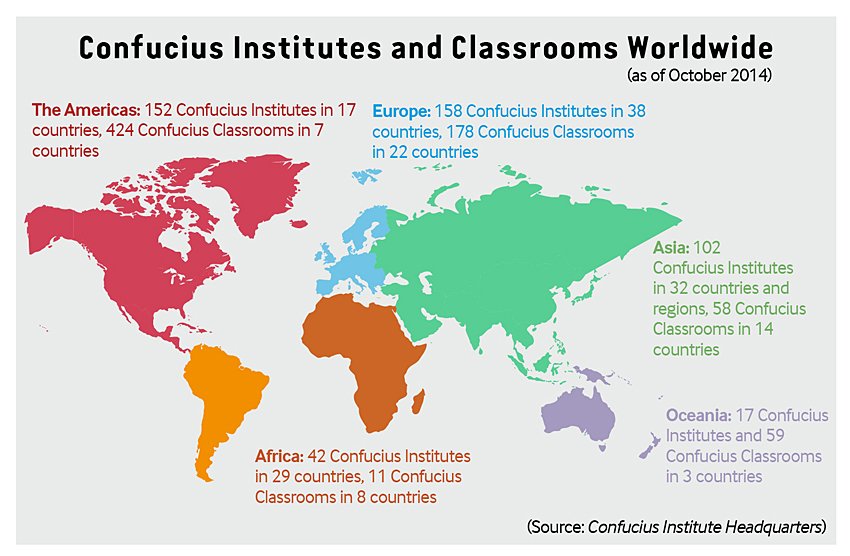~ By Kavita Ogale

The currently frigid US state policy to resist any Chinese government-powered trade has led to the rapid shuttering of 24 China-funded Confucius Institutes across American universities. Meanwhile, even as the Indian government monitors the growth of these institutes warily in cities across the country, China seems to be keen to close the gaps in cultural and language exchange with its neighbour by offering scholarships to Indian students to promote the study of Mandarin. Inchin Closer believes that the need to safeguard power internally and uphold indigenous values and traditions should not deprive countries like India and the US of maintaining their history of multicultural harmony.
Rising dissent and investigative probing of the Confucius Institutes across universities in America has led to shutting down of at least ten of its centres within this year itself and more are set to follow. Citing reasons like lack of transparency and political propaganda to promote a pro-Beijing narrative, efforts continue to thwart any visage of supposed ‘intelligence leakage’ embedded within home turf from a potent political and economic rival. The Chinese government’s attempt to control academic discourse on its history through these institutes as part of its soft power strategy may be unauthenticated so far. In spite of this, US universities that hosted 40 percent of the Confucius Institutes since the Institute’s inception in 2004 seem to have no choice but to comply with the US government’s directive. Contributing to the Cold War ideology of keeping China at bay is set to affect the traffic of Chinese students on campus that amounts to 400,000 at present and millions in funding.
If the culling of Chinese learning is being enforced as a response to growing mistrust and need to protect American interest, America’s Modern Language Association records a fall of over 9% in foreign language learning across universities between 2013 to 2016. To sustain seamless collaborations in the global economy, the need for foreign language skill in the US has multiplied in the last five years with nine out of ten employees demanding it as a pre-requisite. Spanish, Chinese and Japanese are the most sought-after languages professionally highlighting the need to incorporate foreign language learning as instrumental in enhancing job opportunities. As the second largest economy after its own, the US would be wise not to undermine the need for Chinese language learning.
Similarly, India which will share 50 percent of the world’s GDP with China by 2050, cannot ignore the need to cultivate Mandarin. Although China has been advocating the establishment of Confucius Institutes in India since 2012, there are only three functional centres in Mumbai, Vellore and Kolkata so far. A conscious resistance against succumbing to the soft power penetration of Chinese influence and espionage through educational institutions has led to India looking critically and cautiously at these Institutes.
While other world language and cultural centres like Alliance Francaise, British Council or Goethe Institute do not elicit such reservations, China’s communist nature, its ambitious geopolitical clout and aggressive foreign policy are ensuring India administers its own guidelines for the running of China’s state-sponsored cultural centres within its borders.
With the US coming down heavily on trading relations with China, President Xi Jinping will be looking to secure better partnerships with India in coming days. Chinese Government Scholarships are enabling Indian students from Mumbai University to head to China to pursue language studies in Mandarin and it will be interesting to see if this trend catches on in the rest of the country.
